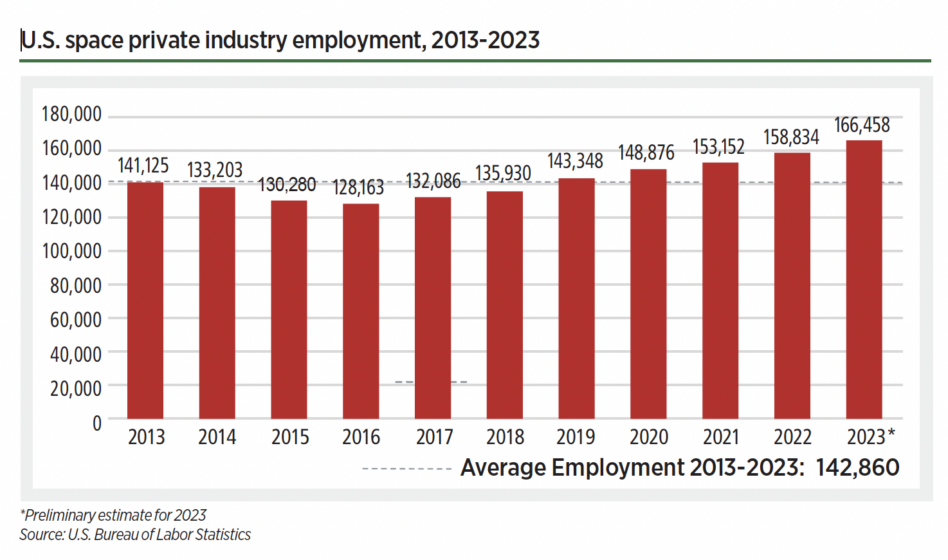The space industry is getting crowded.
The sector added 26,000+ jobs between 2022 and 2023 in the space heavy-hitters, including the US, Japan, India, and Europe, according to a new report from The Space Foundation.
This growth is about four times larger than the number of workers added a year prior and points to a thriving global space economy that has nearly doubled in size over the past decade.
“We’re just seeing more and more nations realizing the importance and value of being in space. They’re also recognizing that space can be such an economic elevator in terms of workforce and salary,” Lesley Conn, the Space Foundation’s research director, told Payload.
Global hiring: The report, which combined government and industry data from the US, Japan, and India with survey data in Europe, found that the workforce was on the rise overall between 2022 and 2023.
In the US, which leads the pack in global space jobs, the commercial space workforce grew 4.8%—the seventh year in a row with an increase.
Nations with smaller space industries recorded more rapid growth. In Europe, the workforce grew 9.1% in the same time frame.
- France, the largest employer in the EU’s space industry, grew at a rate of 8% YoY and now employs 21,000+ space workers.
- Germany and Italy, employing 11,000+ and 7,000+ space workers respectively, each grew at 9% YoY.
- The UK, which employs just over 6,300 space workers, grew the most rapidly with a 19% jump.
The strongest sectors for growth were satellite manufacturing, the launch sector, communications, and ground stations, according to Conn.
Shifting strategies: In India and Japan, the shift has been largely in the type of space economy jobs available. Both nations have been moving from centralized workforces, employed by government agencies or large corporations, to a more diverse industrial base with a budding startup culture.
The Japanese space industry, which has traditionally been dominated by large corporations, has been broadening, with one estimate from SPACETIDE showing that there are now more than 100 private space firms in the country. This is due in part to the $6.7B space fund that the Japanese government kicked off this spring to allow JAXA to support a broader range of commercial technologies.
In a similar vein, ISRO has been opening its doors to working with the domestic commercial industry, which has led to the standup of 400+ private ventures.

